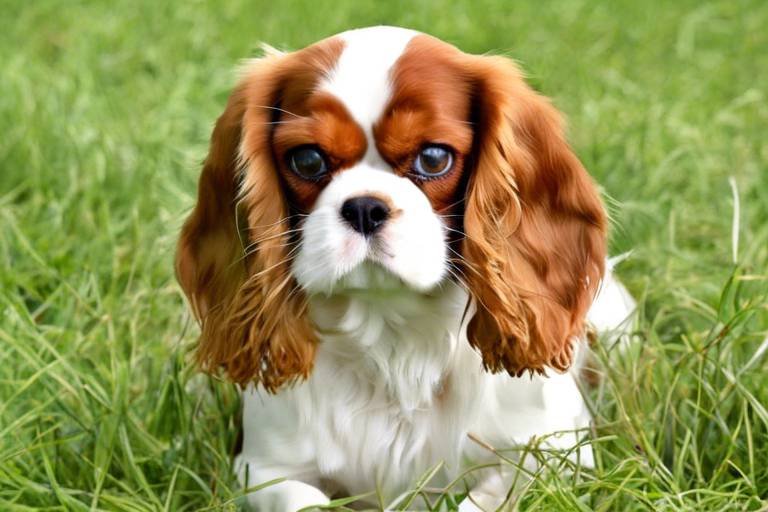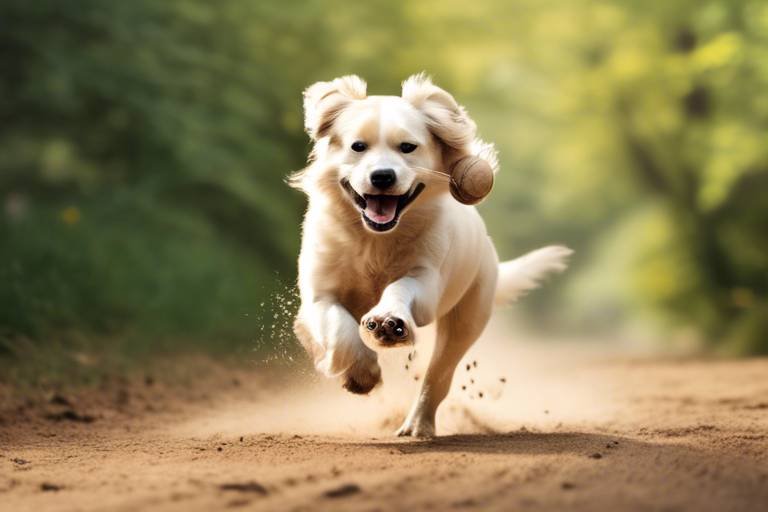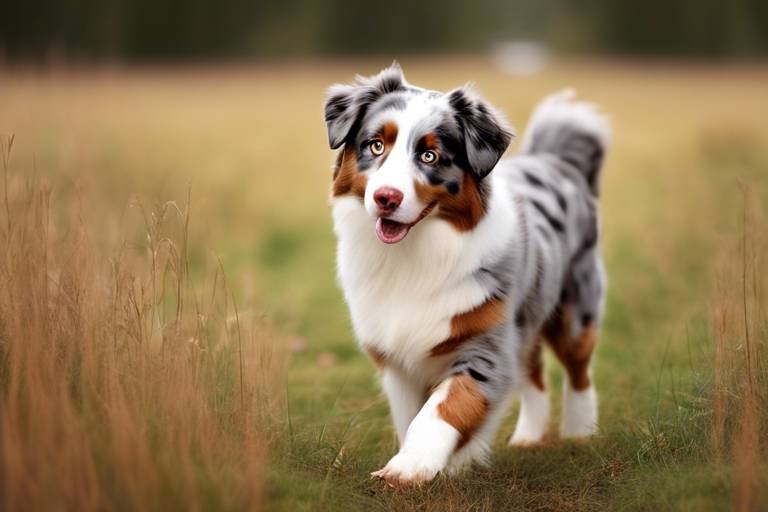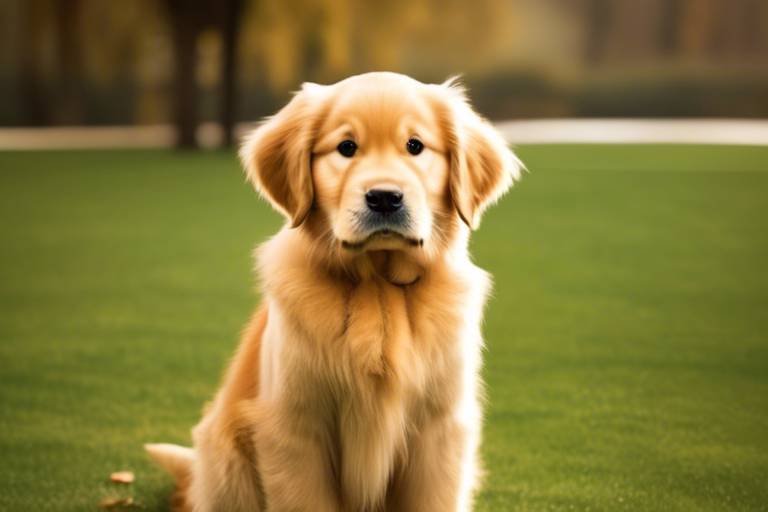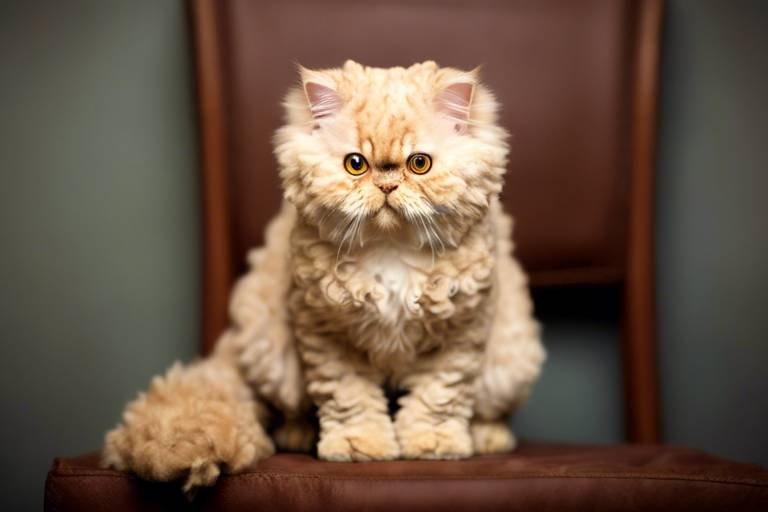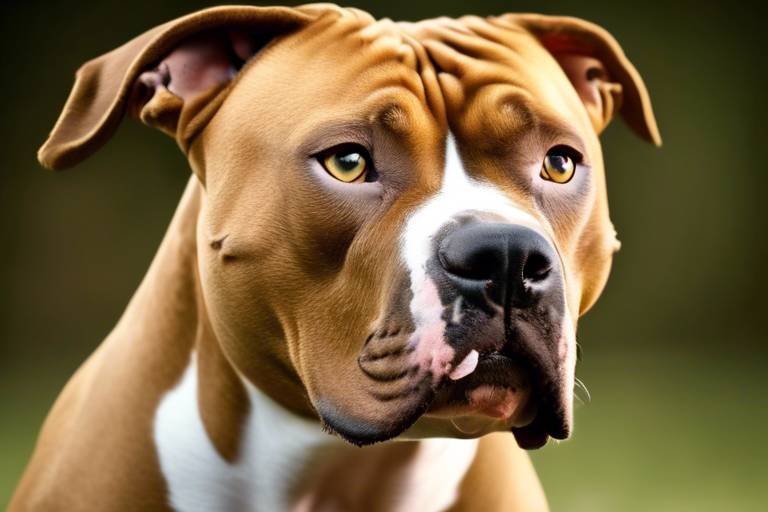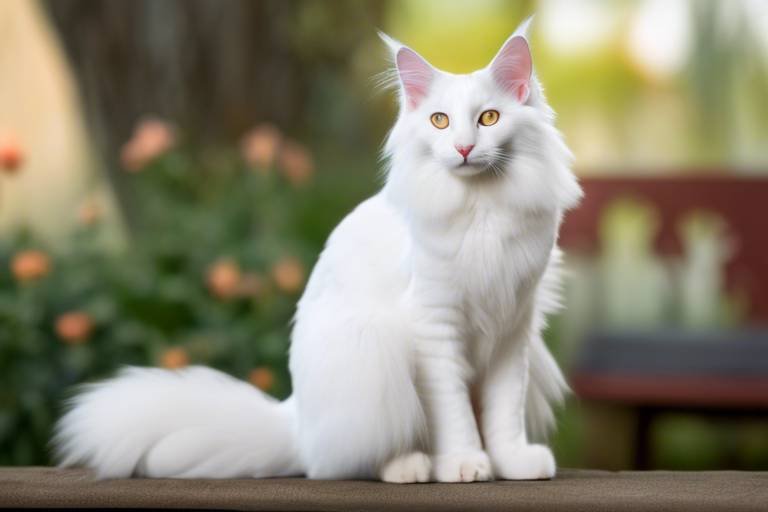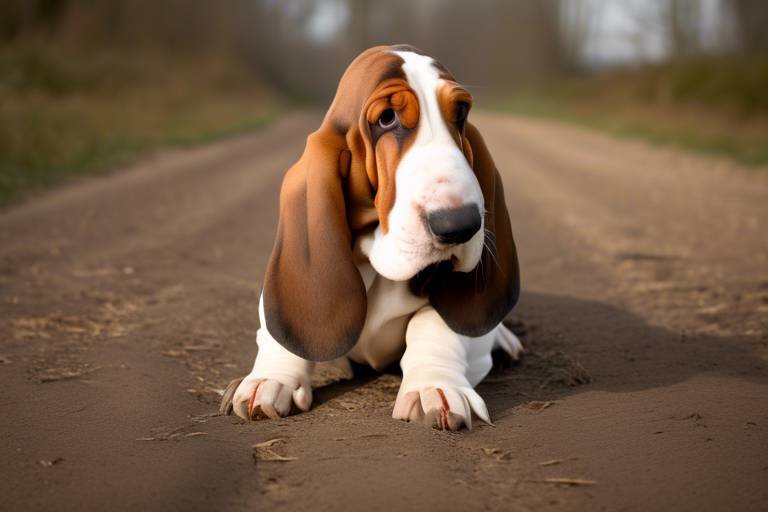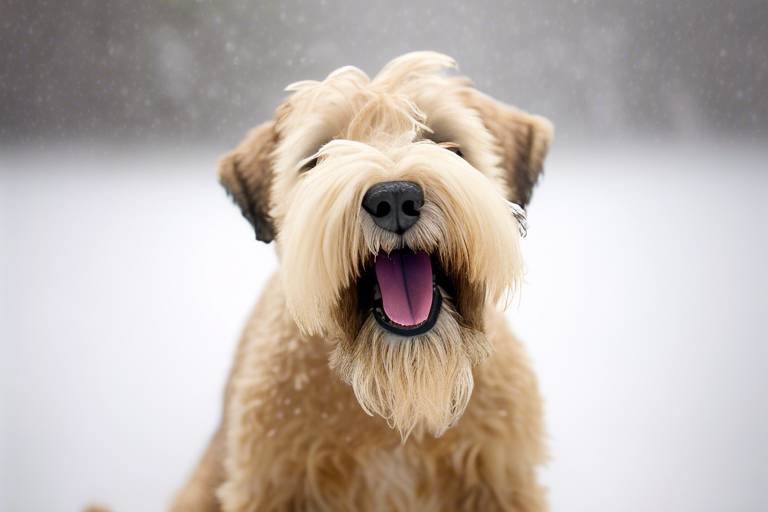The Friendly Personality of the Great Pyrenees
The Great Pyrenees, often affectionately referred to as "Pyrs," embody a gentle giant persona that captures the hearts of many. With their majestic appearance and soft, fluffy coats, these dogs are not just beautiful to look at; they also possess an extraordinary temperament that makes them ideal companions. Imagine coming home after a long day to a loyal friend who greets you with a wagging tail and a warm, inviting demeanor. This is the essence of the Great Pyrenees. Their friendly nature is complemented by a calm disposition, which allows them to coexist harmoniously with families, children, and even other pets.
One of the most remarkable traits of the Great Pyrenees is their affectionate personality. They are known for forming strong bonds with their human companions, often displaying a level of loyalty that can only be described as profound. Whether it’s snuggling up on the couch or following you around the house, these dogs thrive on companionship. Their gentle nature makes them particularly suitable for families, as they tend to be patient and tolerant, especially around children. However, their size and strength mean that supervision during playtime is essential to ensure safety for both the dog and the kids.
Moreover, the Great Pyrenees has an innate protective instinct, often acting as a guardian for their loved ones. This protective nature doesn’t manifest as aggression; rather, it’s a watchful presence that ensures the safety of the family. They are known to be particularly vigilant and can sense when something is amiss, making them excellent watchdogs. Their ability to balance affection with a sense of duty is what sets them apart from other breeds. In essence, the Great Pyrenees is not just a pet; they are a loving family member who is always on your side.
In summary, the Great Pyrenees is a breed that brings together gentleness, loyalty, and protective instincts in one charming package. Their friendly personality makes them a beloved choice for families and individuals seeking a companion that is both affectionate and reliable. Whether you are looking for a playmate for your children or a steadfast friend to share your life with, the Great Pyrenees stands out as an extraordinary option.
- Are Great Pyrenees good with children? Yes, they are known for their gentle demeanor and can be excellent companions for children when supervised.
- How much exercise do Great Pyrenees need? While they enjoy outdoor activities, they are relatively low-energy dogs and require moderate exercise, such as daily walks.
- Do Great Pyrenees bark a lot? They may bark to alert their owners of potential threats, but excessive barking can be managed through training.
- Are they easy to train? Great Pyrenees can be independent thinkers, so consistent and positive reinforcement training methods work best.
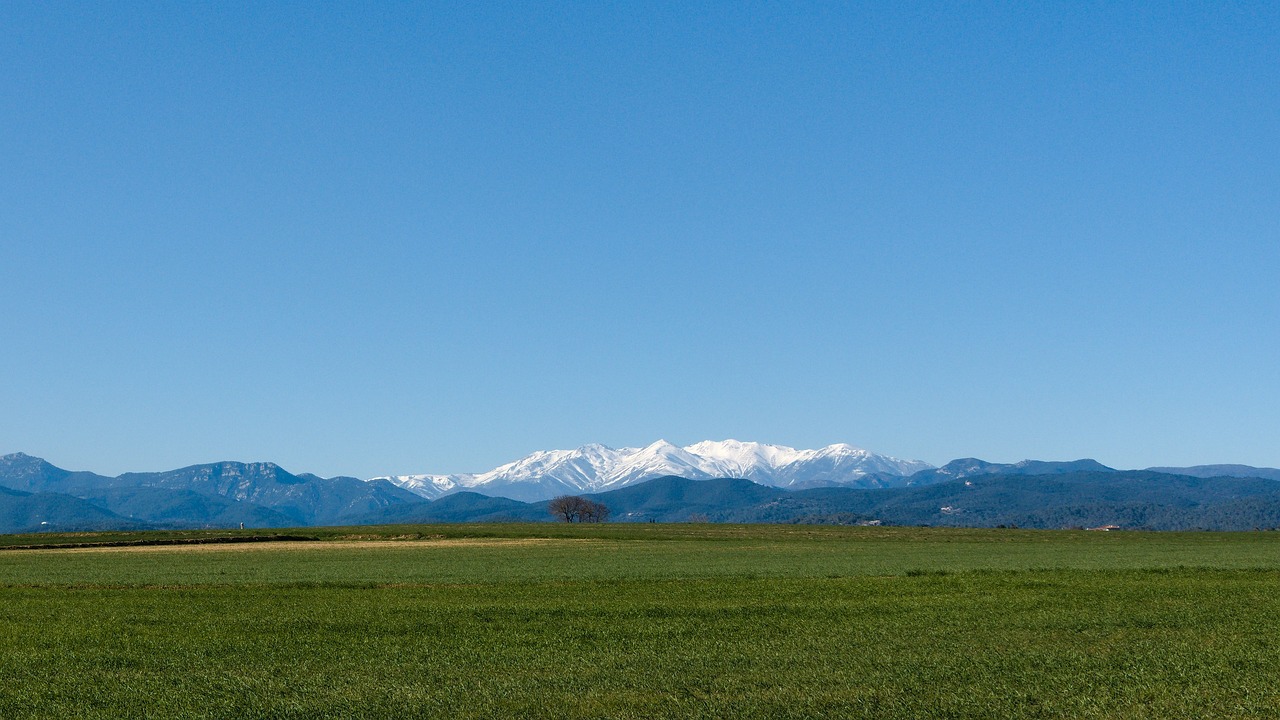
Temperament Overview
The Great Pyrenees is often celebrated for its calm and gentle demeanor, which makes them a favorite among families and individuals seeking a loyal companion. These majestic dogs are not just large in size; they are also large in heart, embodying a friendly disposition that can warm even the coldest of days. Imagine a fluffy cloud that follows you around, ready to offer affection and protection at a moment's notice. This breed is known for its affectionate nature, which makes them ideal pets for those looking for a furry friend who is both loving and dependable.
One of the standout traits of the Great Pyrenees is their gentleness. They have a way of interacting with people that is both soft and reassuring. Whether it's a gentle nuzzle or a playful paw, these dogs communicate their love and loyalty effortlessly. Their temperament is often described as calm, which makes them less prone to anxiety and aggression compared to other breeds. This calmness is particularly beneficial in a family setting, where children and other pets may be present. The Great Pyrenees has an innate ability to remain composed, even in chaotic environments, which is a precious quality for any family pet.
It's also important to note that the Great Pyrenees is a protective breed. Their natural instincts drive them to guard their loved ones, making them excellent watchdogs. However, this protective nature does not translate into aggression; rather, they are more likely to assess a situation and respond with caution. This blend of affection and protectiveness makes them not just pets, but true family members. They thrive on companionship and are known to develop strong bonds with their humans, often following them from room to room, eager to be part of every family moment.
In summary, the Great Pyrenees is characterized by a temperament that is calm, gentle, and protective. Their friendly nature makes them wonderful companions, capable of providing both love and security. For anyone considering adding a Great Pyrenees to their family, it’s essential to understand that these dogs are not just pets; they are loyal friends who will enrich your life with their affectionate presence.
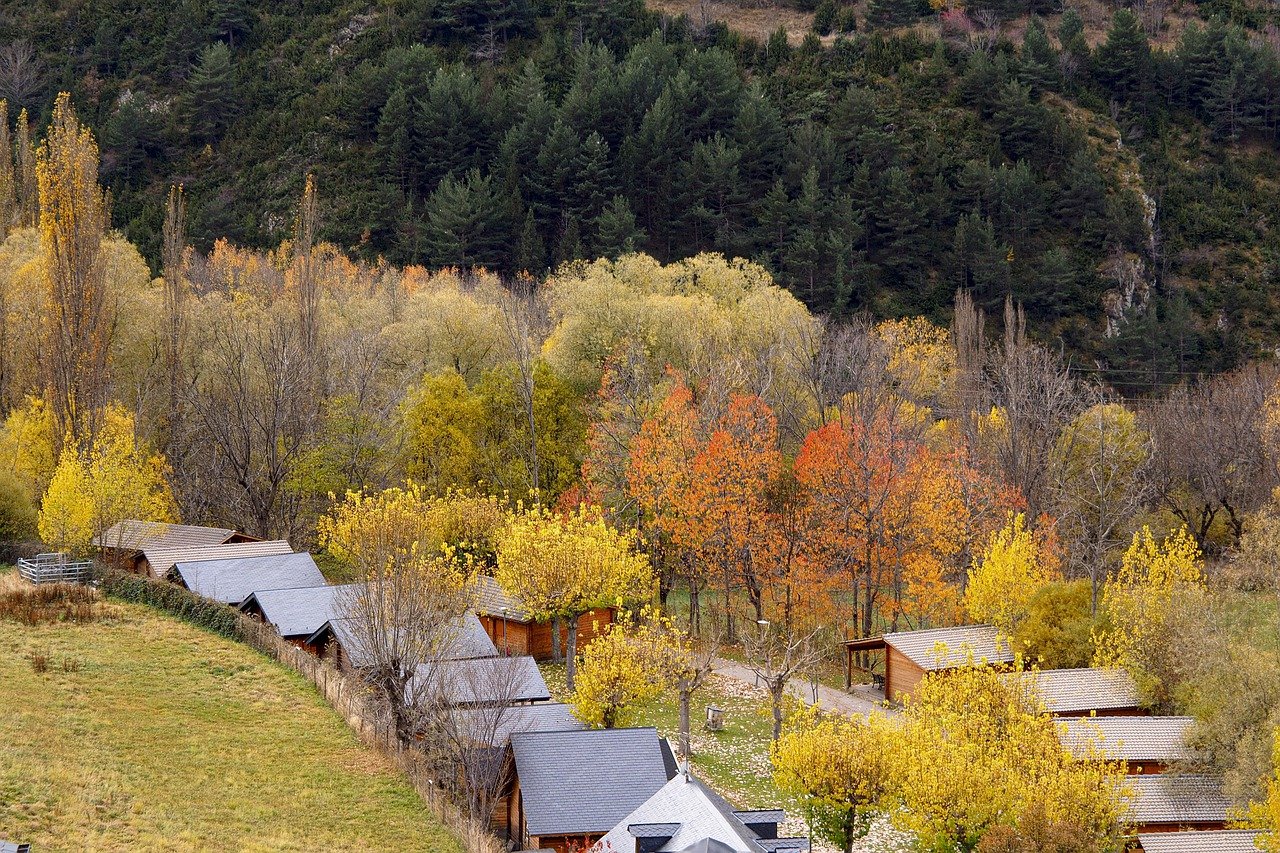
Socialization Needs
The Great Pyrenees, with their gentle and friendly disposition, thrive in environments where they can socialize effectively. Socialization is not just a luxury for these majestic dogs; it is a necessity that shapes their behavior and temperament. Without proper socialization, even the friendliest Great Pyrenees can become shy or overly protective, which can lead to behavioral issues. So, how do we ensure that our furry friends develop into the well-adjusted companions we know they can be?
One of the most effective strategies for socializing your Great Pyrenees is to introduce them to a variety of people, environments, and experiences from a young age. This early exposure helps them learn appropriate behaviors and reactions in different situations. Think of it as giving them a toolbox filled with skills that they can use throughout their lives. The more tools they have, the better equipped they are to handle new experiences with confidence and grace.
When it comes to socializing your Great Pyrenees, consider the following key areas:
- Varied Environments: Taking your Great Pyrenees to parks, pet-friendly stores, and busy streets can significantly enhance their social skills. Each new environment presents unique challenges and opportunities for interaction.
- Meeting New People: Encourage your dog to meet different people, from children to elderly folks. This exposure helps them understand that not everyone is a threat and that humans come in all shapes and sizes.
- Interactions with Other Animals: Safely introducing your Great Pyrenees to other pets is essential. This not only helps them learn how to interact with other animals but also reinforces their friendly nature.
Moreover, early socialization is not a one-time event; it’s an ongoing process. Regular outings and playdates can keep their social skills sharp and adaptable. Think of it like a dance; the more you practice, the more graceful your movements become. By continually exposing your Great Pyrenees to different situations, you help them become a well-rounded dog, ready to face the world with a wagging tail and a friendly bark.
Early socialization practices are crucial for the Great Pyrenees. During the critical period of puppyhood, which typically spans from 3 to 14 weeks, your puppy is like a sponge, soaking up experiences and forming opinions about the world around them. This is the prime time to introduce them to various sights, sounds, and smells. The goal is to create positive associations with new experiences, ensuring that your Great Pyrenees grows up to be confident and friendly.
Taking your Great Pyrenees to different environments can be incredibly beneficial. Imagine your dog exploring a bustling park filled with children playing, people jogging, and other dogs barking. Each of these experiences teaches them something new. For instance, they learn to remain calm amidst chaos, which is a vital skill for any dog. Plus, the more diverse the experiences, the more adaptable they become.
Encouraging positive interactions with other animals is equally important. Start with calm and friendly dogs, gradually introducing your Great Pyrenees to different breeds and sizes. Always supervise these introductions to ensure safety and comfort. Think of it as a playdate; you wouldn’t want your friend to meet someone who might make them uncomfortable. By fostering positive interactions, you help your Great Pyrenees develop a friendly nature that will shine through in all their relationships.
Early Socialization
When it comes to raising a Great Pyrenees, one of the most critical aspects is . Think of it as laying the foundation for a strong and healthy relationship with your furry friend. Just like a young child learns to interact with the world around them, a Great Pyrenees puppy needs exposure to various situations, people, and other animals to develop into a well-adjusted adult. The earlier you start this process, the better equipped they will be to handle new experiences with confidence and ease.
Socializing your Great Pyrenees should begin as soon as you bring them home. This means introducing them to different environments, sounds, and smells. A well-socialized Great Pyrenees is not just a friendly pet; they become a confident and adaptable companion. Imagine a dog that can comfortably stroll through a bustling park, greet strangers without fear, and play well with other pets. This is the result of good socialization practices!
To effectively socialize your Great Pyrenees, consider these important activities:
- Exposure to Different Environments: Take your puppy on car rides, visit pet-friendly stores, or enjoy a day at the park. Each new place offers unique sights, sounds, and smells that can help your dog become more adaptable.
- Meeting New People: Encourage friends and family to interact with your puppy. This helps them learn to trust and enjoy human company, which is essential for their development.
- Engaging with Other Animals: Arrange playdates with other dogs or visit dog parks. Positive interactions with different breeds can enhance their social skills.
Remember, the key to effective socialization is to keep these experiences positive and rewarding. Use treats and praise to reinforce good behavior, making each new encounter a fun adventure rather than a stressful situation. This way, your Great Pyrenees will associate new experiences with positive outcomes, which is crucial for their emotional well-being.
In conclusion, early socialization is not just a checkbox on your puppy's to-do list; it's a vital part of their growth into a well-rounded adult. By taking the time to expose your Great Pyrenees to different environments and experiences, you're setting them up for a lifetime of happiness and confidence. So, grab that leash, and let the adventures begin!
Here are some common questions about early socialization for Great Pyrenees:
- When should I start socializing my Great Pyrenees? It's best to start as soon as you bring them home, ideally around 8 weeks old.
- How long should socialization sessions last? Keep sessions short and fun, around 10-15 minutes, gradually increasing as your puppy becomes more comfortable.
- What if my Great Pyrenees is shy or fearful? Take it slow and be patient. Use positive reinforcement and avoid overwhelming them with too many new experiences at once.
Exposure to Different Environments
Introducing your Great Pyrenees to a variety of environments is not just a fun outing; it's a crucial part of their development. Imagine this gentle giant, with their fluffy white coat and soulful eyes, exploring the world around them. Each new place, from bustling parks to quiet streets, offers a treasure trove of experiences that can shape their friendly disposition. The more diverse their experiences, the more adaptable and confident they become.
For instance, taking your Great Pyrenees to dog parks can provide them with the opportunity to meet other dogs and people. This interaction can help them learn how to communicate effectively with their peers, which is essential for a well-rounded temperament. Moreover, visiting pet-friendly stores allows them to encounter different sights, sounds, and smells, further enhancing their social skills. Think of it as a field trip for your furry friend—each outing is a chance for them to learn and grow.
Additionally, exposing your Great Pyrenees to various public places can help them become more comfortable in different settings. Whether it’s a busy shopping area or a quiet nature trail, these experiences teach them how to handle new situations gracefully. Remember, a well-socialized dog is not just a happy dog; they are also more likely to be well-behaved and confident in unfamiliar environments.
But don’t just stop at parks and stores! Consider taking your Great Pyrenees on road trips or to family gatherings. These experiences can strengthen their adaptability and help them bond with you and your family. Just like humans, dogs thrive on new experiences, and the more positive interactions they have, the better they will be at navigating the world around them.
Lastly, it’s important to remember that every dog is unique. Some Great Pyrenees may take longer to adjust to new environments than others. Patience is key! By gradually introducing them to various settings, you’ll help cultivate their friendly personality and ensure they grow up to be the gentle giants we all adore.
- How often should I expose my Great Pyrenees to new environments? Regular outings are beneficial, ideally a few times a week, to keep their social skills sharp.
- What should I do if my Great Pyrenees is scared in new places? Take it slow, offer reassurance, and let them explore at their own pace. Never force them into situations that make them uncomfortable.
- Can I take my Great Pyrenees to crowded places? Yes, but start with less crowded areas and gradually increase the level of activity as they become more comfortable.
Interactions with Other Animals
The Great Pyrenees, with their gentle and friendly nature, are often seen as the gentle giants of the dog world. When it comes to interacting with other animals, these dogs have a unique ability to foster positive relationships. Their calm demeanor allows them to approach new animal friends with a sense of curiosity rather than aggression. This is crucial, especially for families with multiple pets or for those considering adding a Great Pyrenees to their household.
To ensure that your Great Pyrenees develops a friendly disposition towards other animals, it's essential to introduce them to various pets in a controlled and safe environment. For instance, if you have cats, allowing your Great Pyrenees to observe them from a distance initially can help them acclimate. Gradually decreasing the distance while maintaining a calm atmosphere can encourage a peaceful relationship. Remember, a patient approach is key. Rushing these introductions can lead to stress for both your dog and other animals.
Additionally, supervised playdates with other dogs can be incredibly beneficial. During these interactions, it's vital to monitor body language. Look for signs of relaxed behavior, such as wagging tails and playful barks. If you notice any signs of discomfort, such as growling or stiff body posture, it’s best to separate the animals and try again later. Regular, positive interactions can help your Great Pyrenees learn how to communicate effectively with their furry companions.
Another important aspect is understanding the breed's natural instincts. Great Pyrenees were originally bred to guard livestock, which means they might exhibit protective behaviors around smaller animals. This instinct can be beneficial when properly channeled. For example, if you have smaller pets, teaching your Great Pyrenees to respect their space and boundaries through consistent training can lead to a harmonious household. Training techniques that focus on rewards for calm behavior around other animals can reinforce their friendly nature.
In conclusion, fostering positive interactions between your Great Pyrenees and other animals is not just about the initial introductions; it’s about ongoing socialization and training. With patience, supervision, and consistent reinforcement, your Great Pyrenees can thrive as a friendly companion not only to humans but also to other pets in your home.
- How do I introduce my Great Pyrenees to a new pet? Start with short, supervised meetings in a neutral space, gradually allowing them to spend more time together as they become comfortable.
- Can Great Pyrenees get along with cats? Yes, they can! However, early socialization and careful introductions are crucial to ensure a peaceful relationship.
- What should I do if my Great Pyrenees shows aggression toward other animals? Consult a professional trainer who can help address these behaviors through positive reinforcement techniques.
Training Techniques
Training your Great Pyrenees is not just about teaching commands; it's about nurturing their friendly personality while establishing a bond that lasts a lifetime. These gentle giants thrive on positive reinforcement, which means you'll need to focus on rewarding good behavior rather than punishing the bad. Imagine it like planting a garden: you wouldn’t pull out the weeds without watering the flowers first, right? Similarly, your training should cultivate the good traits in your Great Pyrenees while gently guiding them away from undesirable behaviors.
One of the most effective techniques is to use positive reinforcement. This involves offering treats, praise, or playtime whenever your dog exhibits the desired behavior. For instance, when your Great Pyrenees sits on command, shower them with affection and a tasty treat. This not only teaches them what you want but also strengthens the bond between you two. Remember, the goal is to make training a fun and rewarding experience for both you and your furry friend.
Consistency is also key. Establish a routine that incorporates training sessions into your daily life. Whether it’s a quick 5-minute session during breakfast or a longer one after a walk, regular practice helps reinforce what they’ve learned. Think of it as a dance: if you and your partner practice the same steps repeatedly, you’ll both become better dancers. Similarly, your Great Pyrenees will become more adept at following your cues the more you practice together.
Another important aspect of training is socialization. As we discussed earlier, exposing your Great Pyrenees to various environments and interactions is crucial. During training sessions, incorporate socialization opportunities. For example, take your dog to a local park where they can meet other dogs and people. This not only helps them learn to behave in different situations but also enhances their friendly disposition. Socialization is like seasoning in a recipe; it brings out the best flavors in your dog’s personality!
Additionally, consider incorporating obedience classes into your training regimen. These classes provide structured environments where your Great Pyrenees can learn alongside other dogs, helping them develop their social skills. Not only will they learn basic commands, but they’ll also gain confidence in interacting with their peers. Plus, it’s a great way for you to connect with other dog owners and share experiences!
Finally, be patient. Training a Great Pyrenees can be a journey filled with ups and downs. Just like any relationship, it takes time to build trust and understanding. Celebrate the small victories, and don’t be discouraged by setbacks. Remember, every dog learns at their own pace, and your love and support will make all the difference.
- How long does it take to train a Great Pyrenees?
Training can vary based on individual temperament and past experiences, but with consistency and patience, you can see significant progress in a few weeks. - Can I train my Great Pyrenees on my own?
Absolutely! While professional classes can be beneficial, many owners successfully train their dogs at home using resources like books and online tutorials. - What are some common commands I should teach?
Start with basic commands like "sit," "stay," "come," and "leave it." These foundational commands will help ensure safety and good behavior.
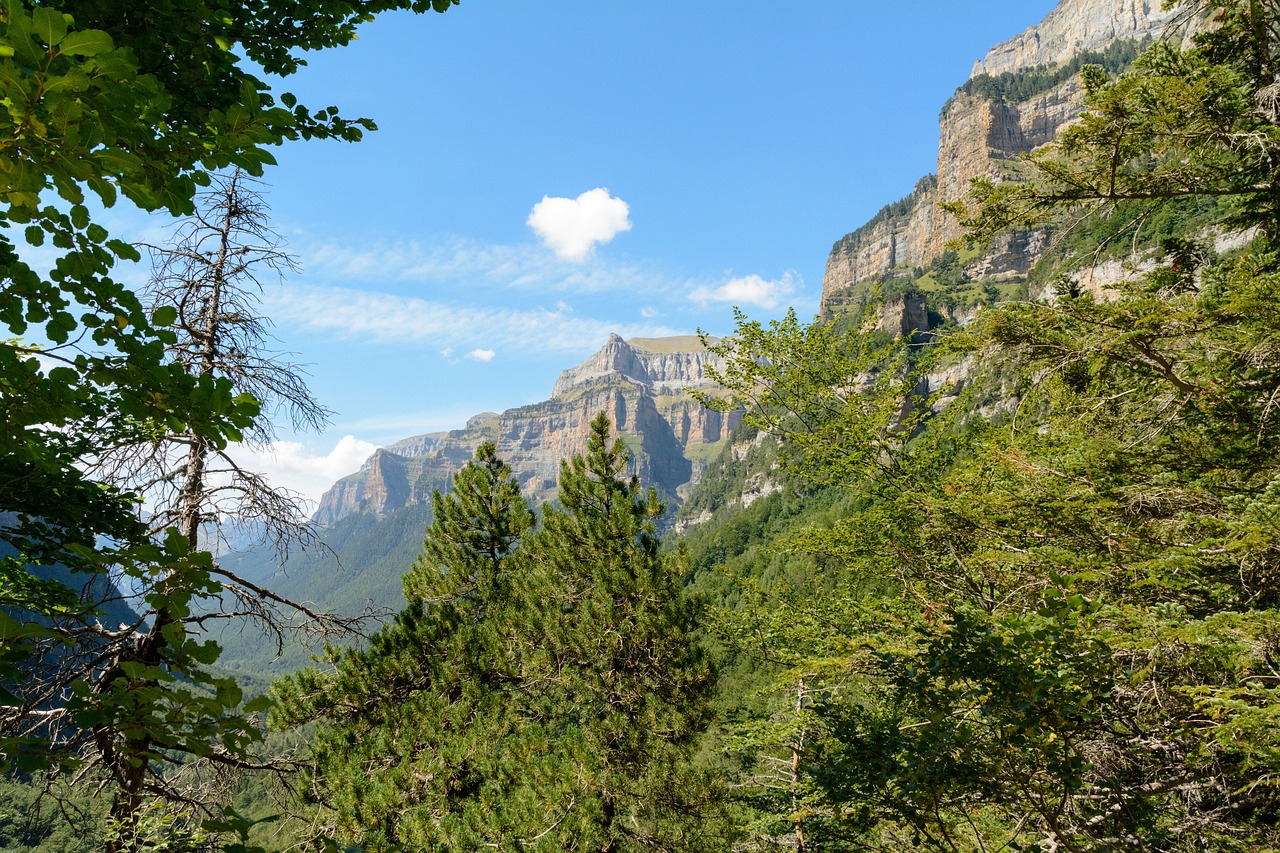
Family Compatibility
The Great Pyrenees is not just a dog; it's a gentle giant that brings warmth and affection to any home. With their affectionate nature and calm demeanor, these dogs are incredibly compatible with families, making them a popular choice for households with children and other pets. Their innate protective instincts often shine through, allowing them to serve as both loving companions and vigilant guardians. Imagine having a furry friend who not only loves to snuggle on the couch but also keeps a watchful eye on your loved ones. That's the magic of the Great Pyrenees!
One of the most remarkable aspects of the Great Pyrenees is their ability to bond with children. These dogs are known for their gentle interactions and patient attitude, making them ideal playmates for kids. Picture a child running around the yard, laughter filling the air, while a Great Pyrenees trots alongside, tail wagging and ready to join in on the fun. However, it’s essential to remember that supervision is key during playtime. While they are generally good-natured, a large dog can unintentionally knock over a small child during a playful moment. So, ensuring that adults are around to monitor interactions can help maintain a safe and joyful environment.
When it comes to bonding with adults, the Great Pyrenees truly excels. Their loyalty is unmatched, and they often form deep connections with family members. Whether it's curling up next to you on the couch after a long day or following you around the house, these dogs thrive on companionship. They have a unique ability to sense when someone is feeling down, often offering a comforting presence that can brighten even the darkest of days. Their affectionate behavior can significantly enhance family dynamics, creating a nurturing atmosphere where everyone feels valued and loved.
In addition to their loving nature, Great Pyrenees are also known for their protective instincts. They have a natural tendency to guard their family and home, which can be a comforting trait for families. This protective nature doesn’t mean they are aggressive; rather, they exhibit a calm vigilance that ensures their loved ones are safe. When strangers approach, a Great Pyrenees may bark to alert you, but they are generally friendly and will warm up to guests once they sense there’s no threat. This balance of being both a loving companion and a protective guardian makes them a perfect fit for family life.
To sum up, the Great Pyrenees is more than just a pet; they are a family member who brings joy, love, and a sense of security into the home. Their friendly disposition, gentle nature, and protective instincts create a harmonious environment that fosters strong bonds among family members. If you're considering adding a Great Pyrenees to your family, be prepared for a lifetime of loyalty and affection!
- Are Great Pyrenees good with children? Yes, they are known for their gentle demeanor and make excellent companions for kids.
- How protective are Great Pyrenees? They are naturally protective and will guard their family and home without being aggressive.
- Do Great Pyrenees require a lot of exercise? While they enjoy outdoor activities, they are relatively low-energy dogs and can adapt to their family's lifestyle.
- How do Great Pyrenees interact with other pets? With proper socialization, they can get along well with other pets and often form strong bonds with them.
Interaction with Children
The Great Pyrenees is often regarded as one of the most gentle giants in the dog world, and when it comes to interacting with children, their affectionate nature truly shines. These dogs have a natural instinct to protect and care for their family, which includes the little ones. Their calm demeanor allows them to be patient and loving companions for kids, making them excellent playmates. Imagine a fluffy cloud that not only brings joy but also stands guard over your children; that’s the Great Pyrenees for you!
One of the most heartwarming aspects of the Great Pyrenees is their ability to form strong bonds with children. They often exhibit a protective instinct, making them feel like a guardian angel for your kids. However, it’s essential to remember that supervision is key during playtime. While these dogs are generally gentle, their size and strength can unintentionally lead to rough play. Therefore, teaching children how to interact with the dog safely is crucial. For instance, children should learn to approach the dog calmly and avoid sudden movements that might startle them.
When introducing a Great Pyrenees to children, it’s beneficial to create a positive atmosphere. Here are some tips to ensure a harmonious relationship:
- Teach Respect: Educate children on how to respect the dog's space and feelings. For example, they should know not to disturb the dog when it’s eating or sleeping.
- Encourage Gentle Play: Promote gentle interactions, such as petting and brushing, rather than roughhousing, which could lead to accidents.
- Involve Kids in Training: Involve children in training sessions. This not only reinforces good behavior but also strengthens the bond between the dog and the child.
Additionally, Great Pyrenees are known for their playful nature. They enjoy games like fetch and tug-of-war, which can be delightful for children. However, it’s essential to monitor these activities to ensure safety for both the dog and the kids. Setting boundaries during playtime will help maintain a joyful atmosphere without compromising safety.
In conclusion, the interaction between a Great Pyrenees and children can be a beautiful experience filled with love, laughter, and loyalty. By fostering a respectful and safe environment, you can create a lasting bond that enriches the lives of both your kids and your furry friend. Remember, these dogs are not just pets; they are family members who will stand by your side through thick and thin!
Here are some common questions regarding the interaction of Great Pyrenees with children:
| Question | Answer |
|---|---|
| Are Great Pyrenees good with toddlers? | Yes, Great Pyrenees are generally gentle and protective, making them suitable companions for toddlers, provided that supervision is maintained. |
| How can I ensure safe play between my Great Pyrenees and my child? | Teach your child to approach the dog calmly, avoid sudden movements, and always supervise interactions to ensure safety. |
| What games can my child play with a Great Pyrenees? | Games like fetch, tug-of-war, and gentle hide-and-seek can be enjoyable for both the dog and the child. |
Bonding with Adults
The Great Pyrenees is not just a gentle giant; they are also incredibly loving and loyal companions to adults in the household. Their affectionate nature often leads to deep bonds that enhance family dynamics. Imagine coming home after a long day, and there’s your Great Pyrenees, tail wagging and eyes sparkling with joy, ready to greet you like you’re the most important person in the world. This kind of connection is what makes them so special.
One of the remarkable traits of the Great Pyrenees is their ability to sense emotions. They can pick up on your mood and often respond accordingly, offering comfort during tough times or joining in on the fun during happy moments. This emotional intelligence allows them to forge strong connections with adult family members, making them not just pets, but true companions. Their loyalty is unmatched; they have a natural instinct to protect their loved ones, which can be incredibly reassuring.
Moreover, these dogs thrive on quality time spent with their humans. Whether it’s going for a leisurely walk, cuddling on the couch, or even engaging in a game of fetch, the Great Pyrenees loves being involved in family activities. The bond deepens as they participate in daily routines, and their calm demeanor creates a serene environment that adults find comforting. It’s like having a gentle shadow that follows you around, always ready to share a moment of affection.
It’s essential to establish a routine that includes regular interaction with your Great Pyrenees. This can be as simple as:
- Daily walks
- Training sessions that reinforce positive behavior
- Playtime that stimulates both their mind and body
- Quiet time together, which can be as rewarding as any active engagement
In addition to these activities, the Great Pyrenees also thrives on positive reinforcement during training. This not only helps them learn commands and behaviors but also strengthens the bond between the dog and the owner. When they see you as their leader, they feel secure and are more likely to be affectionate and loyal. It’s a relationship built on trust, respect, and love.
Furthermore, the Great Pyrenees has a natural protective instinct, which adds another layer to their bond with adults. They often take on the role of a guardian, watching over the home and family members. This instinct not only makes them excellent watchdogs but also reinforces their connection to you. When they feel responsible for your safety, it creates a powerful bond that is hard to break.
In conclusion, the Great Pyrenees is not just a pet; they are a family member. Their ability to bond with adults is profound, characterized by loyalty, affection, and a protective nature. By spending quality time together and engaging in various activities, you can nurture this bond, ensuring that your Great Pyrenees remains a cherished companion for years to come.
- How do Great Pyrenees bond with their owners? Great Pyrenees bond through shared experiences, affection, and by participating in family activities.
- Are Great Pyrenees good with children? Yes, they are known for their gentle nature and can be great companions for children when supervised.
- What training techniques work best for Great Pyrenees? Positive reinforcement techniques, such as treats and praise, are effective in training them.
- How much exercise do Great Pyrenees need? They require regular exercise, including walks and playtime, to stay healthy and happy.
Frequently Asked Questions
- What is the temperament of the Great Pyrenees?
The Great Pyrenees is known for its calm and gentle demeanor. They are affectionate and friendly, making them ideal companions for families and individuals alike. Their laid-back nature often helps them adapt well to various environments, allowing them to interact positively with both people and other pets.
- How important is socialization for Great Pyrenees?
Socialization is crucial for Great Pyrenees to thrive. Early exposure to different environments, people, and animals helps shape their friendly disposition. Proper socialization ensures they develop positive relationships and can handle new experiences without fear or aggression.
- What are effective strategies for socializing a Great Pyrenees?
Some effective strategies include introducing your Great Pyrenees to various environments like parks and pet-friendly stores. Additionally, encouraging positive interactions with other pets and providing consistent training can help reinforce their friendly nature.
- Are Great Pyrenees good with children?
Absolutely! Great Pyrenees are known for their gentle demeanor, which makes them excellent companions for children. However, it's important to supervise playtime to ensure both the dog and the kids are safe and comfortable during interactions.
- How do Great Pyrenees bond with adults?
Great Pyrenees often form strong bonds with adult family members. Their loyalty and affectionate nature manifest in deep relationships, enhancing family dynamics. They thrive on companionship and enjoy spending quality time with their human family.
- What training techniques are best for Great Pyrenees?
Positive reinforcement techniques work wonders for Great Pyrenees. Using treats, praise, and consistency during training sessions helps reinforce good behavior and encourages social interaction with both humans and other pets.
- How can I ensure my Great Pyrenees is well-socialized?
To ensure your Great Pyrenees is well-socialized, start early by exposing them to various environments, people, and animals. Regular outings and playdates can significantly enhance their social skills and confidence.
- Can Great Pyrenees adapt to different living situations?
Yes, Great Pyrenees can adapt to different living situations. While they thrive in homes with space to roam, they can also adjust to apartment living if given sufficient exercise and mental stimulation. Regular walks and playtime are essential for their well-being.


